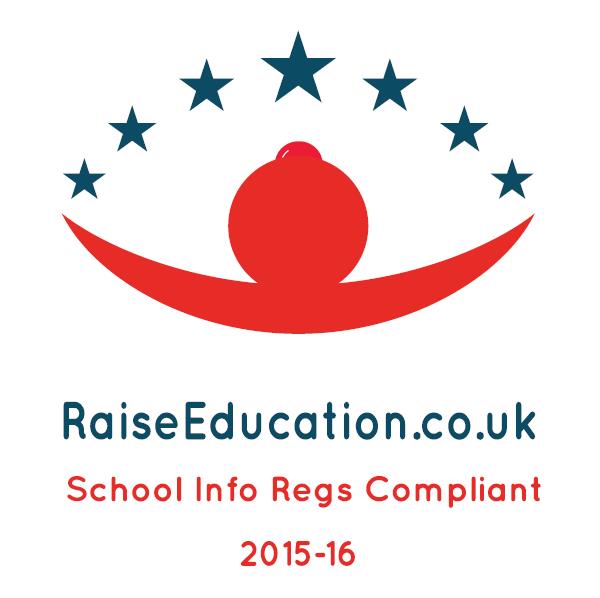Special Educational Needs and Disabilities Information Report
All schools need to provide a Special Educational Needs and Disabilities (SEND) Information Report and a school offer. The school offer is part of the wider Local Authority Offer, and is based on the requirement for all schools to outline the support available to children with SEND (Special Educational Needs and/or disability).
Admission Arrangements
All Southwark maintained schools have a similar approach to meeting the needs of pupils with Special Educational Needs and/or Disabilities and are supported by the Local Authority to ensure that all pupils, regardless of their specific needs, make the best possible progress in school. All schools are supported to be as inclusive as possible, with the needs of pupils with Special Educational Needs and/or Disabilities being met in a mainstream setting wherever possible, where families want this to happen. Specific individual arrangements will be considered and put in place where appropriate.
Please refer to the school’s admissions policy for further information.
School Mission Statement/ Our Ethos
Whole School Approach
All kinds of needs are provided for at St Joseph’s. These are categorised into:
- cognition (thinking) and learning
- communication and interaction, including speech and language
- social, emotional and mental Health
- physical and sensory
Who supports pupils at St Joseph’s?
There are many people at the school who are involved in making sure your child is supported and achieves their full potential, but in different ways. The people involved in helping your child to make the best possible progress are their class teacher, the SENDCos in EYFS/KS1 and KS2, the Head of School and the Executive Headteacher, as well as the Learning Mentor and all support staff throughout the Federation.
Class Teacher
Your child’s class teacher is responsible for your child’s learning and progress. Should you have any concerns you should speak to them in the first instance. They will:
- Always focus on high quality teaching and learning for all of the children in their class, including children with SEND.
- Differentiate their planning and provision for the children, and their full range of unique abilities.
- Monitor the progress of your child and identify any additional help your child may need. This will be discussed with the SENDCo and/or the senior leadership team.
- Ensure that all staff working with your child are able to deliver the planned programme, so that your child can make the best possible progress.
Have a role in the initial information gathering for identifying and assessing if a child has a SEND.
Communicate regularly with parents, through a range of avenues: at the end of the school day, phone calls, emails, communication books, parent meetings.
Work with the SENDCo and other members of staff and external professionals where necessary to make the best provision for your child.
The SENDCo
There are 2 SENDCos working across the Federation, Ms Marianne Breedon (EYFS and KS1) and Mrs Fiona Reilly (KS2). They carry out a number of duties and can be contacted via the school office. Their duties include:
- Coordinating all support for children with SEND
- Supporting teachers and other staff to make further assessments of children with SEND, including arranging for external professionals to become involved where this is necessary. If external professionals are needed the school will always seek your permission to do this, and further involve you in the work of that professional with your child.
- Liaising with other professionals who come into school to help support your child’s learning, e.g. Speech and Language Therapist, Educational Psychologist, Family Support worker etc.
- Ensuring that all of the interventions put in place for children with SEND are effective, that they are based on evidence and best practice of what works for children with SEND.
- Supporting the Teaching Assistants (TAs) who work under the direction of the teacher’s in supporting children with SEND.
- Working with families and other school staff to make the best provision for children with SEND and their families.
- Keeping you informed about the support your child is getting and letting you know how they are doing.
- Updating the school’s SEND register (a system for ensuring all the SEND needs of pupils in the school are known) and making sure there are records of your child’s progress and needs.
- In liaison with senior staff, sourcing training for staff so they are aware and confident about how to meet the needs of your child and others within our school.
The Executive Headteacher
- Ensures that the school as a whole implements the SEND Code of Practice and takes a strategic overview of the impact and effectiveness staff have in this area.
- The Executive Headteacher has overall responsibility for ensuring that all children’s needs are met.
- The Executive Headteacher ensures that the Governing Body are kept fully up-to-date concerning the effectiveness of SEND practices within the school.
The SEND Governor
Ensures:
- The school has an up-to-date SEND policy.
- Appropriate provision and the necessary adaptations have been made to meet the needs of children with SEND.
- They visit the school to see that policy is put into practice.
Will the school be able to help my child if they have SEND?
(Accessibility)
St Joseph’s is a Victorian building with three floors plus a modern extension which houses the Reception and KS1 classrooms. The school has no nursery provision. There is a library, a computer room and a music room. It has three playgrounds, two at ground level and a roof playground. The school has a lift to all floors, and two accessible toilets.
Equipment available as required:
- Communication books (for home and school)
- Devices for additional recording e.g. cameras, laptops, ipads
- SEN software - Communication in Print to produce printed matter with visual prompts, specific maths and literacy computer programmes. ‘Nessy’ – a programme supporting and building on children’s literacy knowledge.
The school will consider purchasing other equipment if there is an agreed identified need. We will normally consider this at the pupil’s annual review. In the past we have worked with partners to purchase specialist equipment tailored for an individual including:
- Personal laptops/iPads
- Move and sit cushion
- Specialist hand writing equipment
How will my child be supported to be part of the school?
Most children with SEND are supported through the regular opportunities provided to all children; high quality teaching, a supportive staff, and excellent play opportunities.
Differentiated work is planned for children with specific learning or physical needs and where necessary individualised curricular are created. Where children require additional resources or equipment to support their needs, the school endeavours to arrange this and incorporates the cost within its delegated funding for SEND. In some incidents additional funding may need to be sought to meet the needs of your child. Details of this can be found in the section ‘What if I think my child needs more help than the school can provide?’
Some children with social, emotional or mental health needs find accessing and participating in school life difficult. For these children, we have a learning mentor who offers KS2 children, an opportunity to be supported with these needs. Weekly group sessions take place including children from across all year groups as well as individual mentoring. These are offered on a regular basis as well as ad hoc, providing for both children’s long-term and more immediate needs.
How will my child be involved in determining their next steps and learning targets?
Children with EHC plans are involved in the Annual Review process. They discuss their progress and expectations of themselves for the coming year, new targets are set in this meeting.
Children on the SEND register have a SEND personal plan. This addresses:
- The support the child needs and will receive
- When and how this will be delivered
- Time limited targets
- Areas for evaluation by the child, adults supporting the child and the parents/carers
Children with SEND have twice yearly reviews, to which all adults working with a child, the child, and the parents/carers contribute.
How is behaviour managed?
Our positive approach to behaviour management is designed to support all pupils and create an environment in which they can flourish. Good behaviour is encouraged throughout the federation, through the setting of high expectations for all, forming good relationships with parents/carers built on trust and sharing children’s positive behaviour and attitudes towards work in our weekly Merit Award assemblies.
All pupils, including those with SEND, will receive all the help they need to develop their self-confidence and manage their behaviour if necessary. On a rolling programme staff have and will continue to receive training to support pupils who exhibit challenging behaviour.
What support do we offer you as a parent/carer of a child with SEND?
Involving parents/carers in the life of the school is very important to us and we make use of a variety of strategies to do this:
- School and class masses
- Achievement assemblies
- Website
- Parents/carer’s consultation evenings
- Workshops e.g. EYFS reading and phonic sessions
- School Events
Class teachers greet the children in the morning as they come in to school.
The SENDCo and members of the SLT are available at the beginning and end of each day to speak with parents/carers. The SENDCo is available to meet with parents/carers who have any questions or issues arising over the course of each term, but also schedule Team Around the Child/Family meetings take place where necessary. This is an opportunity for parents/carers and external professionals who are working together to meet and plan or review provision that’s been made for an individual child – these are usually children with severe and complex needs who have a number of different agencies working together.
For children with severe and complex needs who have an Education, Health and Care Plan, the SENDCo arranges the Annual Review meeting. This is another opportunity for parents/carers and the child to come together with all those who support the child, to discuss and agree, what has been successful, and what is to be the future focus.
What extra-curricular activities can my child participate in?
The school has an accessibility plan in place to ensure that pupils with SEN and Disability can take part in school life. The school’s accessibility plan is updated annually and can be viewed on the school website. Depending on the specific needs of your child, a more personalised access or medical plan will be drawn up in consultation with you. This will be reviewed and updated on a regular basis.
All extra-curricular activities are available to all children, regardless of any SEND. We have a range of after-school activities across the Federation that change on a half termly basis.
We strongly encourage all children to participate in school trips and residential school journey. We undertake additional planning and risk assessments to ensure that all pupils including those with SEND, can take part in the wide range of extra-curricular activities the school offers, including school outings and residential trips. On some occasions an individual member of staff may be assigned to support a small group or individual child if the risk assessment indicates that this is necessary.
What support is available at less structured times of the day? (e.g. playtime, lunchtime)
All children are carefully supervised during unstructured times. Many children find less structured times in the day challenging. Just like in the classroom, where it is necessary, we can provide extra support to these children to help them use playground equipment appropriately, encouraging them to play collaboratively with others and coaching them to learn how to resolve conflicts independently.
How will teaching be adapted to meet the needs of my child?
Across the Federation all teachers focus on providing children with quality first teaching. This means that we focus on the effective inclusion of all pupils in high-quality everyday personalised teaching. Quality First teaching illustrates that:
- the teacher has the highest possible expectations for your child and all pupils in their class.
- all teaching is based on building on what your child already knows, can do and can understand.
- specific strategies (which may be suggested by the SENCO or outside agencies) are in place to support your child to learn.
- different ways of teaching are in place so that your child is fully involved in learning in class, within well differentiated ability groups.
- clear objectives, shared with the children, and returned to throughout the lesson, are in place.
- robust feedback is provided to the children about what there next steps should be to improve their learning.
- your child’s teacher will have carefully checked on your child’s progress and will have decided that your child has a gap in their understanding/learning and needs some extra support to help them make the best possible progress.
- resources have been carefully considered to include all children’s participation in class activities. This could include using visual timetables; coloured overlays; larger fonts and specific IT programs/resources.
- additional adults are used flexibly to support groups and individual children to their long term goal of learning independently.
If required, more specific interventions can be put in place to support groups and individuals to develop key learning skills
How will I know how my child is doing?
Parents/carers are strongly encouraged to attend all parent/teacher consultation evenings. The class teacher will discuss your child’s progress and any additional support in place with you at our twice yearly parents’ evenings.
We also have meetings every term between each class teacher and a senior staff member in the school to ensure all children are making good progress. This is another way your child may be identified as not making as much progress as expected. If your child is then identified as not making progress the school will make a decision about whether to monitor this or to put in additional intervention. If your child is still not making expected progress, despite extra support and intervention, the school will discuss with you the next steps. This may mean a referral to an external agency for further advice and support for you and your child.
Children at SEN support and those who have an EHC plan, in addition to parents evening, will have a SEN review to discuss their needs in more detail.
See also the section: ‘How will my child be involved in determining their next steps and learning targets’
What skills do the staff have to meet the needs of my child?
- All class teachers in the school are qualified teachers who have access to a range of support and training opportunities across the year.
- Individual teachers and support staff attend training courses run by outside agencies that are relevant to the needs of specific children in their class. e.g. phonics, maths, speech and language.
- The Learning Mentor is trained to a high level to work with children to support social and emotional development, including specifically for those with SEN and/or disability.
How are children, who may have special needs, identified?
This is a 4 step process:
What happens if my child does have some difficulties?
1.Identification:
The Head teacher/Head of School will discuss, in the initial interview with parents/carers on a child's entry to school, whether there is any concern or possible difficulties with the child's educational, social or emotional development, or they have physical needs. If this results in identifying a specific need or concern the class teacher and SENCO will be informed so that plans can be made to meet those needs. Parents/carers input will be invaluable in planning to meet a child’s needs.
The class teacher has the responsibility for the learning and progress of all pupils within the class, regardless of whether they have special needs and additional interventions. All children receive quality first teaching, an appropriately differentiate curriculum, and effective use of a teaching assistant to support their needs so that they make expected progress both academically and socially. Procedures are in place to ensure that all children are progressing as they should (see below) and class teachers will respond to any difficulties a child may have at any point in the learning process.
When a teacher finds that a child is not responding as expected or is having increasing difficulties in learning or behaviour, the teacher will seek advice from the SENCO and try alternative strategies in the classroom to resolve the problem.
If a child continues to make inadequate progress, something over and above that which is normally available will be provided for the child. This will be an intervention specifically designed to meet the needs of a child with additional difficulties; these may be relating to communication and interaction, cognition and learning, social, emotional and mental health or sensory and/or physical needs.
There is a learning mentor across the infant and the junior school. The class teacher can seek the advice of the learning mentors for those children with social, emotional and/or mental health needs. A carefully constructed proforma is completed by the class teacher documenting the range of needs that a child has, giving the learning mentor a starting point for the processes/activities they can employ to support children to ensure their barriers to learning are alleviated.
Before interventions are put in place pupil and parental consultation will take place, and with parental/carer agreement a personalised plan will be devised, setting out targets, expected outcomes and an appropriate timescale for achievement. The pupil will have the opportunity to consider the targets with the SEN team. This will give the pupil a chance to understand why that target has been chosen and what it is they need to contribute to achieve their target, in the time expected.
- 2. Assessment:
All children are assessed by their class teacher termly in phonics (Key Stage 1) reading, writing and mathematics across both key stages. This provides a National Curriculum level (Y1 – Y6) for each child in each subject. Pupils’ attainment and progress are reviewed termly at pupil progress meetings. Pupils not making expected progress are carefully considered and the reasons for lack of progress examined. This leads to differentiated approaches and learning arrangements which are provided as part of high quality personalised teaching. This is not SEN provision, it is targeted support; in class or outside the classroom with additional adult support for an individual or small group. Work is planned and appropriately differentiated by the class teacher, to meet the needs of an individual or small groups of children with similar needs.
- 3. What will the school do once they know what my child finds difficult?
Plan and do
If, after additional support, a pupil does not make progress as expected an intervention programme will be considered, as indicated below, each addresses an area of SEN. Children will be tested in reading and number to provide detailed information of their strengths and areas for improvement, in both aspects of learning.
Named intervention programmes:
- Phonics – individual or small groups KS1 and KS2
- Firstclass@number – addressing learning and cognition, number in KS1
- Comprehension – ‘catch-up comprehension’ – Y2
- ‘Nessy’ – computer programme supporting literacy learning KS1&2
- Speech and Language – addressing communication and interaction
- Learning Mentor – addressing social, mental and emotional health including issues of bullying
The above programmes are costed, monitored and evaluated. If children do not make progress, the efficacy and delivery of the programme is reconsidered. The staff delivering interventions receive training to ensure they are confident to teach the programme requirements, and have cognisance of the expected learning outcomes.
How will you know it the provision is making a difference for my child?
- 4. Review:
The progress of pupils who are at SEN Support will be kept under constant review. However, a formal review will take place twice yearly against the expected outcomes in their personalised plan, and the progress they are making in their lessons. The following people will be involved in the review meeting: class teacher, SENCO, parents/carers. The views of all participants at the meeting, plus the child’s views (see below) will be taken into account when considering whether the learning outcomes have been achieved.
The child will give their view of their progress prior to the formal review meeting. This meeting will give time for the child and SENCO to discuss from the child’s perspective their achievements, their progress, and any difficulties they have encountered in meeting their targets. Also how the support helped them to achieve their goals and establishing the child’s future goals. The child’s views will be presented at the review meeting.
A discussion will follow the review of the best way forward to support the child, (also taking their views into consideration) to make further progress and a new personalised plan will be agreed with updated expectations.
How will my child manage tests and exams?
Summative assessments (tests) occur at defined periods during the academic year such as SATs tests and optional tests. Summative tests are used alongside teacher assessments to help teachers in making end of year and end of key stage assessments. Class teachers ensure that children with SEND access suitably differentiated tests, have additional time if required or that the test is broken into smaller units to make it more manageable.
In Year 6, prior to SATs assessments, a decision will be made with you about whether or not it is appropriate for your child to take the tests. The Executive Headteacher, the SENDCO and the Y6 class teachers will then determine whether any pupils with SEND require a reader, scribe and/or additional time to access the tests.
How do I find out more about what my child needs?
The class teacher is responsible for every child, and on a daily basis observes and assesses what your child needs, how they are responding to the teaching and what changes might need to be made to this.
If the class teacher would like support in assessment or provision, they discuss this with the SENDCo and other senior staff, who then work together with your child and you to find out more about what your child needs.
What extra support can be brought in to help the school meet the needs of my child?
There are a range of services we draw upon, including
- Speech and Language Therapy,
- Physiotherapy,
- Occupational Therapy,
- Paediatricians (including the Autism and Associated Disorders clinic at Sunshine House Child Development Centre),
- Child and Adolescent Mental Health Services (CAMHS).
These can all be accessed through a referral by the SENDCo. If you feel your child would benefit from advice from any of these services, please first discuss your concerns with your child’s class teacher and SENDCo who will explain how your child is being supported already in school and consider what could further support your child.
Who makes sure everything is happening?
Every class teacher is responsible for every child in their class. The SENDCo, because of their working relationships with external professionals, also has a responsibility to ensure that services for children with more complex needs are being provided. Ultimately, the Head Teacher is responsible for the education of all the children at the school and they too review the provision in place for all children.
What if it isn’t working as you hoped?
After a plan and its strategies have been reviewed and we feel the child’s progress has either stopped or not as quick as we would like, we will discuss the need to make a referral for advice and support from one of the outside agencies that work with the school.
Once you have agreed to their involvement, the agency will make an appointment for your child to be observed in school or in some cases, at another venue such as a clinic. They will assess your child and consult with both you and school staff who work directly with your child. They will work with us to plan what we need to do next to support your child’s progress.
This could be more personalised provision such as speech and language therapy or occupational therapy, different teaching strategies or different types of intervention groups. This will depend on your child’s specific needs.
What happens if I am still worried or I disagree?
Parents are encouraged to share any concerns they have about the quality and impact of SEND provision for their child at the earliest possible opportunity. In the first instance parents should speak to the class teacher, with further discussions with the SENCO and other senior leaders as required.
What if I think my child needs more help that the school can provide?
If you think that your child needs more help than the school can provide, there is the option of asking the local authority for an assessment to decide whether an Education, Health and Care (EHC) Plan is needed. These plans used to be called Statements of SEN.
Having an EHC Plan means your child needs a very significant amount of individualised support that cannot be provided from the budget available to the school. It also usually means their needs are severe, complex and likely to have a lifelong impact on their learning and development.
To obtain an EHC plan, an application must be made to your child’s home Local Authority (LA) for an EHC needs assessment. This can be completed by the parent/carer, but is usually completed by your child’s school by the SENDCo.
An EHCP application requires the school to provide a range of information and evidence about your child’s needs. This information is carefully considered by the LA’s SEN panel, after which they will make a decision as to whether your child qualifies for an EHC needs assessment.
If they agree to the request, they will ask you, and all the professionals working with your child, to write a report outlining their needs. If they do not agree that your child needs this assessment, they will inform you and ask the school to continue to support your child through the resources already in place in the school.
After an EHC needs assessment has been agreed and the reports have been sent to the LA they will decide if your child’s needs are severe, complex and likely to be lifelong. If this is the case, they will write an EHC plan. If not, then they will inform you and ask the school to continue with school –based support. In this case, they will set up a meeting with your child’s school to ensure a plan is in place that will enable your child to make progress.
What if I agree with some aspects of the plan, or I disagree about them conducting the assessment?
If you are unhappy with any aspect of the EHC plan that is issued or a decision made not to issue a plan, you should contact the LA about your concerns.
Parents/carers can also contact the Southwark Information Advice and Support team (SIAS) which provides advice and information to parents/carers of children aged 3-25 with SEND. Their contact details are:
Telephone: 0207 -525 -2886; email: This email address is being protected from spambots. You need JavaScript enabled to view it.
How will the school help my school to settle into the school?
The Executive Headteacher and Head of School meets with all children and their families who have been allocated a place in Reception at the school. Any additional needs are discussed at these meetings and additional support can be planned for in advance of their start date.
Tours of the school for prospective new children with special educational needs and their families can be arranged.
The SENDCo also meets with the child and parent/carer where appropriate; and if the child has been attending another setting, she will liaise with and/or organise a transition meeting with the previous school.
The school can provide a transition book for children with SEND for the summer break with photos of the school and key staff so parents/carers can use these with their child, where such an approach would be beneficial in helping the settling in period.
If appropriate, additional visits or a staggered start for children with special educational needs can be arranged.
How will the school help my child transition into a new class?
An information sharing meeting takes place between the current class teacher and the new class teacher. This includes information about differentiation, behaviour management strategies and your child’s strengths and needs. There is a moving-up afternoon so all children can meet the new teacher and other key staff.
The SENDCo will schedule transition meetings for children with more complex needs so that they can become more familiar with their new environment and key staff. If needed, a transition booklet can be made for the child to take home over the summer
How will the school help my child manage the transition to secondary school?
The SENDCo will liaise with the head of Year 7 or the SENDCO of your child’s new school once a place has been confirmed. Planning for transition will begin in consultation with the new school. This may include additional meetings or visits between the SENCOs of the two schools.
If your child has an EHC plan and where possible, the SENCo of the new school will be invited to your child’s annual review. Also where possible, your child will visit their new school accompanied by a member of staff who knows them well. Usually, staff from the new school will also try to visit your child in this school.
How will the school fund the support needed for my child?
A part of the school’s budget is allocated every year to help meet the needs of pupils with SEND.
At St Joseph’s Camberwell Catholic Schools Federation, we manage these resources effectively and endeavour to ensure that pupils receive adequate support to help them make progress.
How are decisions made about funding and what can I do if I am unhappy with this?
The school’s governing body set the school’s budget and the Executive Head Teacher reports regularly to them on how the resources are deployed. Unless your child has an EHC plan, all their learning support comes from the school’s delegated funding.
Only those children with the most complex needs, in possession of an EHC plan, receive additional funding to further support their needs. The funding they receive is based on the severity of their needs and the type of support they will need to assist those needs. This is determined by the LA when the EHC plan is written. If you are unhappy with the decision around funding, then you should contact the LA to discuss this with them directly or liaise with SIAS.
Where can I or my child get further help, information and support?
The first port of call is your child’s class teacher or the school’s SENDco.
The school’s website is regularly updated and is an important source of information for parents/carers as well as providing links to other helpful sites.
Where can I find out about what is available locally for me, my family or my child?
The Local Offer
Each local authority produces their own ‘local offer’, depending on which borough you live in. Southwark: https://localoffer.southwark.gov.uk/
Lambeth: https://beta.lambeth.gov.uk/lambeths-send-local-offer
You can also contact the ‘Southwark Information Advice and Support’ team This email address is being protected from spambots. You need JavaScript enabled to view it..
This has been established to ensure that parents and carers of children from 3 to 25 years with special educational needs and/or disability (SEND) have access to information, advice and guidance to allow them to make informed decisions about their child’s education. The service helps parents write letters and complete forms, deal with education issues, visit schools and provide information about the SEND process.
The Family Information Service
The Family Information Service (FIS) provides information on local services available to children, young people and families in Southwark. They can assist with:
- Registered Childcare, including children’s centre, childminders, nurseries, pre-schools, breakfast clubs, after school clubs and holiday play schemes
- Help towards childcare costs
- Free Early education
https://www.southwark.gov.uk/childcare-and-parenting/family-information-service
Contact a Family
The national charity, ‘Contact a Family’ supports families living in Southwark who have disabled children between the ages of 0 and 19. They offer a wide range of services to families with disabled children available from their website.
https://www.lambethandsouthwarkmind.org.uk/directory/contact-family-southwark/
How do I complain if I am not happy with what is happening with my child?
We hope that every parent/carer is happy with what is in place for their child. If you have anything you are not sure about, or have a concern with, the first thing to do is always discuss this with your child’s class teacher. In most instances, issues are resolvedat this stage.
However, if you remain unhappy you can also speak to SENDCo, Head of School or Executive Head Teacher at the school. A copy of the school’s complaints procedure is available upon request from the school.



















